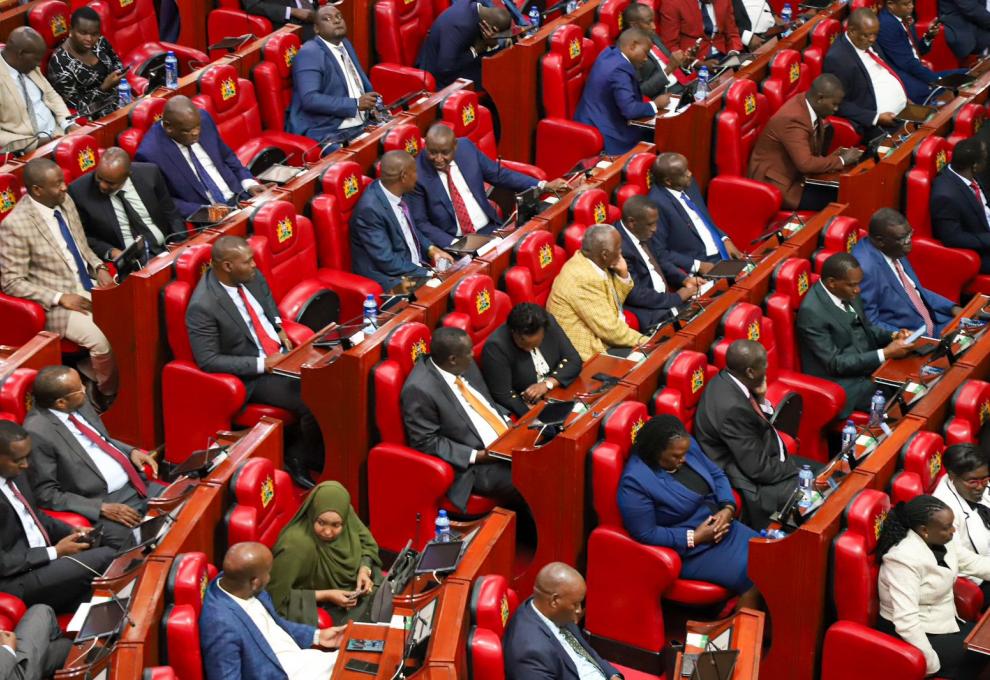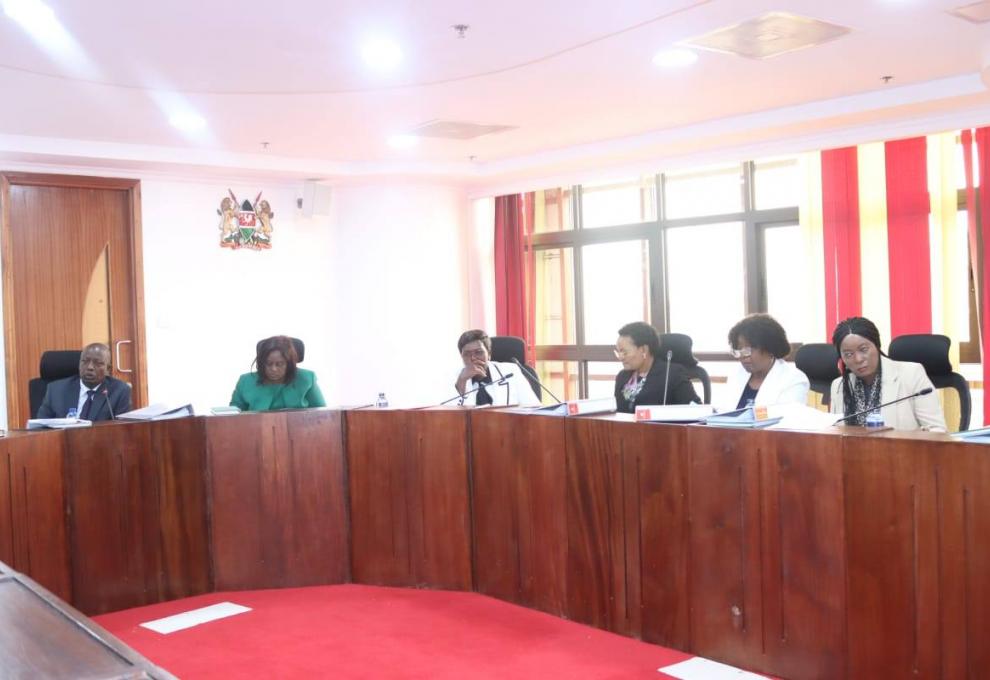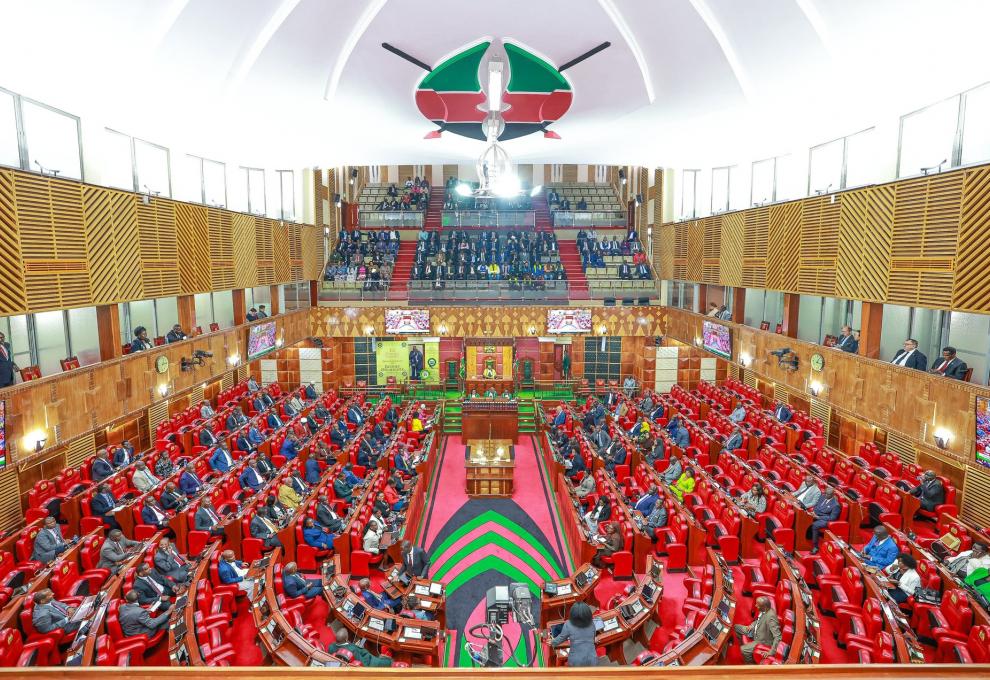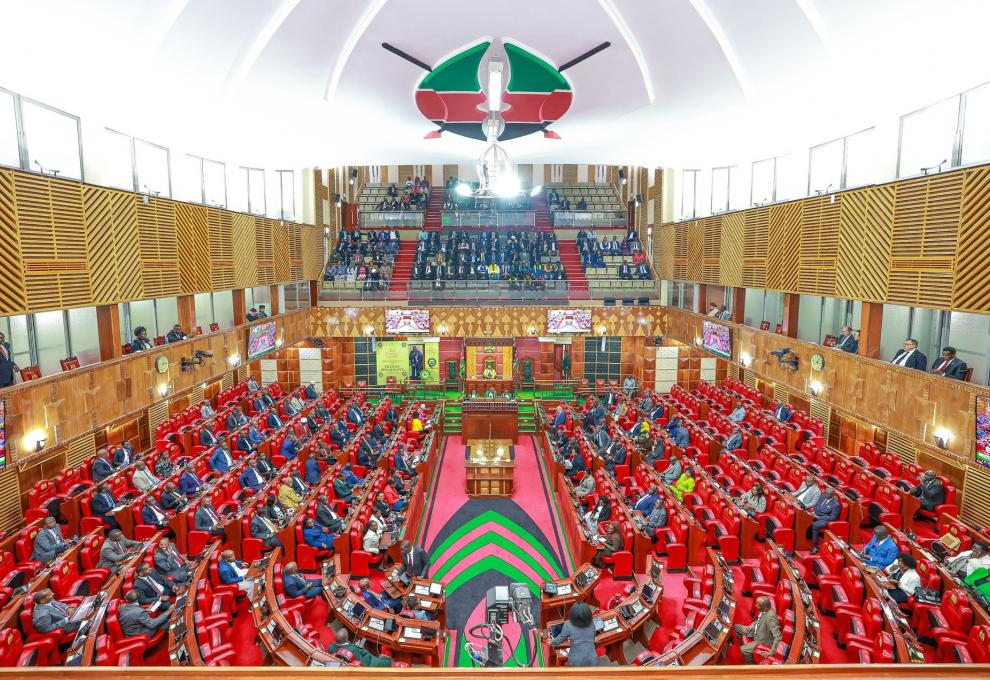𝗖𝗢𝗠𝗠𝗜𝗧𝗧𝗘𝗘 𝗢𝗡 𝗔𝗚𝗥𝗜𝗖𝗨𝗟𝗧𝗨𝗥𝗘 𝗔𝗡𝗗 𝗟𝗜𝗩𝗘𝗦𝗧𝗢𝗖𝗞 𝗘𝗡𝗚𝗔𝗚𝗘𝗦 𝗖𝗔𝗣𝗜𝗧𝗔𝗟 𝗠𝗔𝗥𝗞𝗘𝗧𝗦 𝗔𝗨𝗧𝗛𝗢𝗥𝗜𝗧𝗬 𝗔𝗡𝗗 𝗞𝗘𝗡𝗬𝗔 𝗔𝗦𝗦𝗢𝗖𝗜𝗔𝗧𝗜𝗢𝗡 𝗢𝗙 𝗠𝗔𝗡𝗨𝗙𝗔𝗖𝗧𝗨𝗥𝗘𝗦 𝗢𝗡 𝗖𝗢𝗙𝗙𝗘𝗘 𝗕𝗜𝗟𝗟
The Departmental Committee on Agriculture and Livestock chaired by Tigania West MP, Hon. (Dr.) John Mutunga on Tuesday, June 4, 2024 engaged officials of the Capital Markets Authority (CMA) and Kenya Association of Manufacturers (KAM) on the proposed Coffee Bill (Senate Bill No. 10 of 2023).
The Bill seeks to establish the Coffee Board of Kenya (CBK), and the Coffee Research Institute (CRI) which will provide for; the role of the National and the county governments; regulation, development and promotion of coffee industry; and connected purposes.
CMA, Chief Executive Officer, Mr. Wycliffe Shamiah, told the Committee that under the constitution of the Board in Section 7 of the Bill, the Principal Secretary National Treasury is left out in the interest of CMA. This, they said, is important since one of the functions of the Board under section 11 (a) is to regulate and promote the development of the coffee industry where CMA plays a key role.
According to Mr. Shamiah, Section 11(0) of the Bill states that the Board shall regulate the trading of coffee which is a function of the CMA at the Coffee Exchange, arguing that the Board should focus on regulating Direct Sales window.
“Section 11 (2) has provided that the Board shall collaborate with the Council of Governors (CoG) in discharging their functions. The Authority is neither represented in the Board nor mentioned as an agency for collaboration therefore locking them out. We propose that the Authority is included in the collaboration,” Mr. Shamiah told the Committee.
CMA also proposed that the Bill revokes the Nairobi Coffee Exchange Rules 2012 which are still in force.
On the other hand, Manager Legal & Regulatory Affairs, KAM, Ms. Ruth Lemlem told Members the Coffee Bill will create a more conducive environment for business and manufacturing, encourage investment and promote innovation by introduction of tax holidays and reduced corporate tax rates for the new coffee processing and manufacturing business for the first five years. According to her this would grow the coffee industry in the country.
“For infrastructure development, the Bill should facilitate the development of essential infrastructure such as roads and utilities in coffee growing areas through Public-Private Partnership (PPP). Developing roads and utilities ensures that coffee growing areas are easily accessible, reducing transportation costs and time for moving raw and processed coffee,” Ms. Lemlem said.
KAM also proposed the provision of incentives for private investment in warehousing infrastructure as tax deductions on construction costs.
















